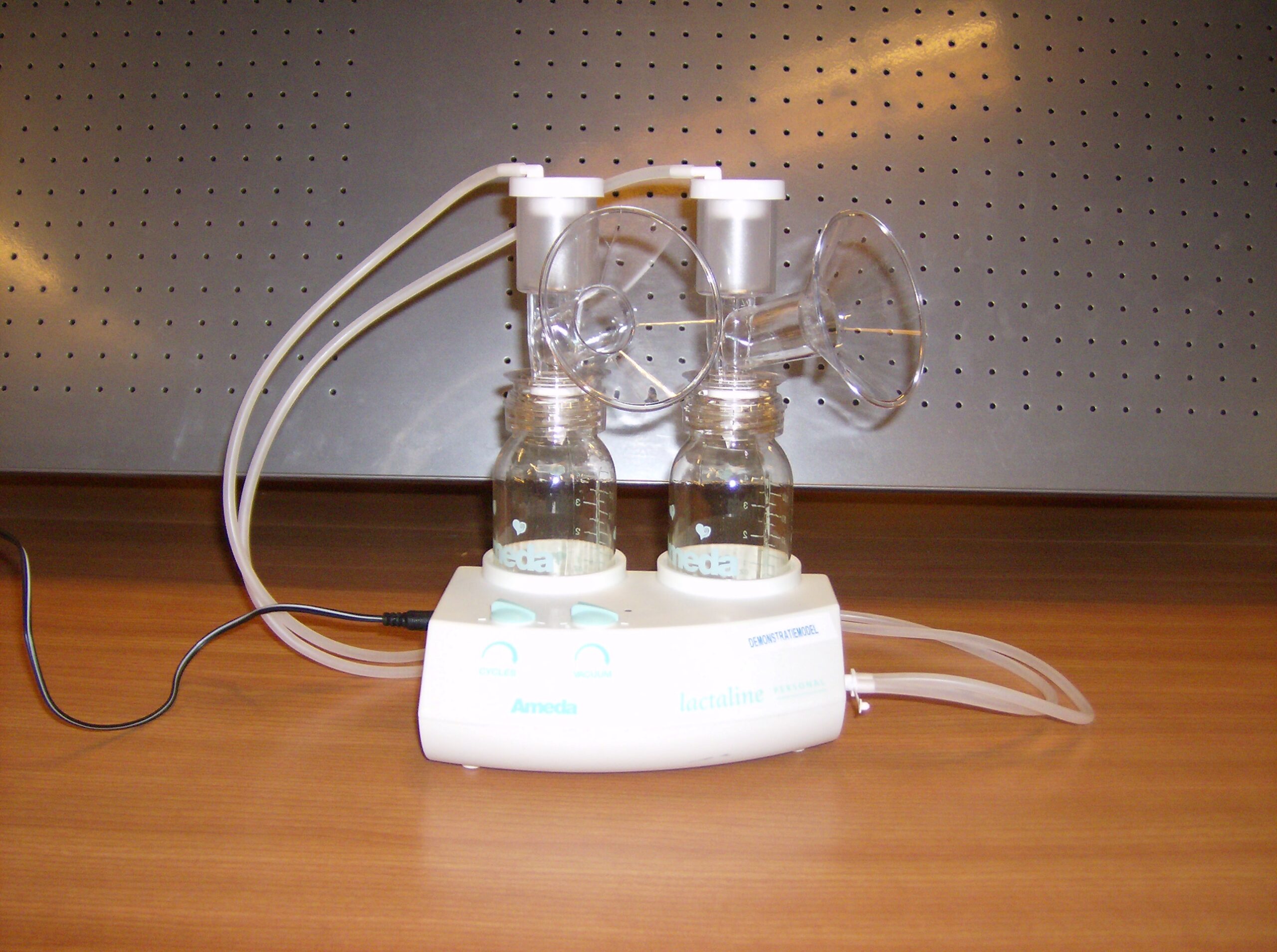If you think that breast milk is the best choice for your child, but you cannot breastfeed, or you do not want to continue then, what can you do? That’s where it comes in an exclusive pumping. Pumping Exclusive is a great way to provide your baby with your breast milk without putting the baby to the breast.
Overview
There are opportunities that arise to prevent mothers from being able to breastfeed. A mother who has a baby who cannot or will not nurse, for may assume there is no option but only to use the formula. There are other options, however, and one that does not seem to get any support or recognition it deserves – exclusively pumping, also known as “EPing”.
In majority cases, a mother who has made the decision to exclusively pump do not does “light”. She realizes irreplaceable benefits of milk, and she wanted the baby to have the best. By making him the most logical decision is to pump and give the milk to the baby with a bottle.
Unfortunately, many (including health care providers) will tell the mother that this is a crazy idea, and “it will never work”; “You’ll run out of milk”; or it will say “You will not be able to keep up”. Without the support and information the baby needs, a mother might just give up.
Those who do not give up often confronted with other problems to overcome. They normally feel like they are in a class by themselves, are removed from the ordinary mothers usually formed into a “support group” good for nursing mothers, nursing mothers milk or formula.
They may feel they have to explain “why” they “milk bottle” breast milk – even for their health care providers are often asked. “Breast or bottle” assuming “bottle” is the formula.
While everyone does not agree that there are benefits irreplaceable to feed the baby directly from the breast, everyone must agree that breastfeeding itself is irreplaceable. When faced with breast-feeding, or not, so if possible should be breastfed regardless of the delivery method.
How often should you pump if you are exclusively pumping
First and foremost – one must have good quality, double electric pump. Some women hire them; others buy a pump like Hygeia Enjoye. The quality of the pump makes all the difference in the world!
A newborn baby nurses an average of 8 to 12 times in a 24 hour period. Most experts suggest it would be better if the mother can come close to matching what normal nursing. Infant will do in the breast, and recommend him pumping every two hours, no more than three hours between sessions.
Understanding how milk production can help mothers in their efforts to establish a good milk supply. The more often breast emptied, the more milk the mother should have. Therefore, if he is to pump at least every three hours, for about 20 minutes, he had to build and maintain a good milk supply. In the first two weeks, he might want to pump at least twice in the evening, but not all mothers do this.
How much breast milk will my baby require?
On average, most newborn will drink 1.5-3oz per meal, or 20-25 ounces per day. Averagely for 0-1 months age is 22.3oz; 1-2 month olds average 26.3oz.) My son is a big and rising to 30oz by the age of one month, so it can also be varied.
How can I make this easier?
I think there are three things that make an exclusive pumping more manageable.
First, get into a routine. This applies to everything related to the pump – pump, eat, wash bottles and pump parts, extra milk clotting – figure out a schedule or to manage the system so you do not have to think about it.
Secondly, there are some products which really can help, such as hands-free bra, extra pump parts, etc.
Increase your breast milk supply
There are wonderful tips to increase the supply of milk under. Those who work for nursing mothers also work for mothers who exclusively pump, the biggest “difference” is that nursing mothers are encouraged to put the baby to the breast frequently, and the mother pump is driven to pump frequently.
Perhaps the most important thing to remember is to pump frequently and pumping long enough to soften (or “empty”) breast. A few little tips to improve your supply if you really need it then read it.
- Drink plenty of water first. I do not drink a lot but I would like to stay hydrated. Observe your pee when you go (I know, it sounds funny!). If the pee is light yellow to clean up means, you have to be hydrated.
- Make sure you eat! When you pump, you will keep the weight off, I promise! It can make you hungry like a horse, and it’s for a reason. You need the extra calories as you burn so much off! When I do not eat enough, I will really light headed and felt like I was going to drop my baby … not good!
- Eat real oatmeal, not instant. You can eat quick oats (people who cook in 1 minute) or old-fashioned oats (which cooks in 5 minutes). You can also cook a cake that has oatmeal in them and getting oatmeal in a way (I prefer this way). How they make instant oatmeal, it does not give the same results.
- Resting (yeah, I know it is easier said than done!) If you are tired and have the time to take a nap (even if it pushes back the pump you) do it! You really will get more milk that way! Even if you do not sleep, rest by sitting a lot. Saving energy is important.
- Do not take too much stress please. It all upon on how you individually handle tension.
- Some people suggest drinking dark beer (with or without alcohol.) Some say it is barley in it or something, which helps to increase the supply. Plus some women swear by relaxing just give them! Anyways you may have one or two beers without crossing into your milk.
- There is a tea called Mothers Milk Tea and it was supposed to improve your supply if you drink it. There are herbs like Fenugreek and also prescription drugs that will increase your supply if you really need it. I would use it as a last resort, but they can be effective and available!
- Most importantly, a good pumping habit will keep your supply good and so increase it! “
Note: Most experts recommend in breast-feeding do not routinely use alcohol to boost the supply of milk more.
How Long to Pump in every time
At every time, you have to pump for at least 15 minutes on each side. It can take several minutes for your milk to let down, so give yourself enough time. You also want to try to completely empty your breasts, because this is a primary part of increasing the production of more breast milk.
Once you trench your breasts and no more milk to flow out into a collection container, continue pumping for one to five minutes. Since milk is made based on supply and demand, the extra stimulation will tell your body to make more.
You do not need to pump for more than 20 minutes. Pumping for 15 to 20 minutes more often throughout the day generally will produce more than pumping breast milk more often for longer periods of time.
Exclusive pumping for working women
At work, you should try to pump every three to four hours to about 15 minutes per session. That sounds great but returned to the concept of supply and demand. Your baby takes to milk every few hours. Pumping often to make sure you are able to follow his needs.
You can try to pump both breasts at the same time – super effective! – reduce your time together with the pump. And if you’re concerned about privacy, it is essential to know that at in many countries the majority offices contain a private room to meet their kids. Obviously you will not be pumping stuck in a bath cabin!) Talk to your boss before you return to work on arrangements to make.
If you do not feel like you are producing enough, do not worry. Your milk supply can be different in the morning than the evening. Or you can make more milk a week and less than the other. Your diet, stress levels and other factors can affect the amount of breastfeed.
Some mothers can fill a whole bottle in a single pumping session while others two or three times maybe need to pump to fill the same bottle. It is not any type of competition every woman has a different structure. Talk with your doctor or lactation consultant if your supply continues to be weak or if you notice that most soaking.
You can also try to eat certain foods to help your milk supply.
A word from babyhealthcaree
Exclusive pumps can be time-consuming and demanding. Fatigue and stress are known to reduce the milk supply. So it’s essential to take care of them. Try to drink plenty of fluids, eat well, rest when you can, and relax while pumping. Do not be tensed to ask for help from your spouse, friends, and family.




